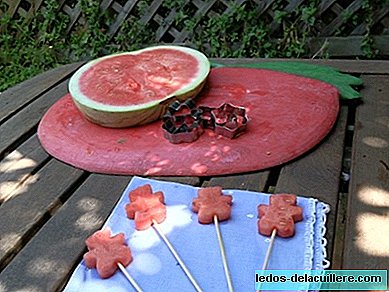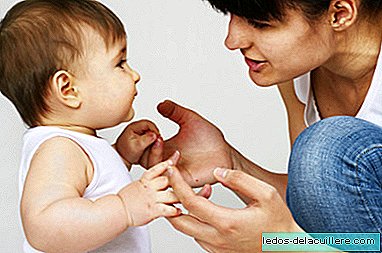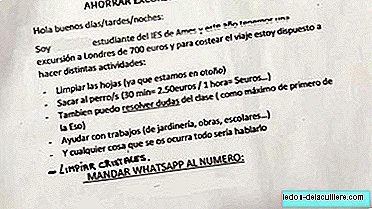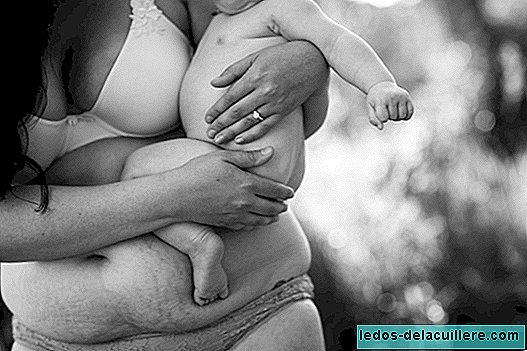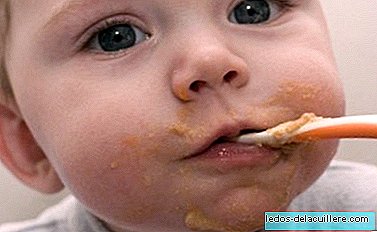
Spoon in hand, the child in the high chair, holding almost his hands so that he can not remove the food that goes to his mouth no matter how much he tries to remove it. A recurring image with a soundtrack that repeats “a little more“.
For mom and dad. A little plane is coming. Open the mouth. You have to eat everything to grow. An endless list of messages that reach the child who simply does not want to eat anymore.
What a young child really needs to eat
Finally I accepted, after reading the magnificent “My child does not eat me” by Carlos González, that my son's nutritional needs, which grew healthy, happy and active, were considerably lower and that he was able to know perfectly whether he wanted or not "a little more“.
And, in addition, with eating a spoonful or two more we will not be covering an alleged insufficient intake of nutrients. A little more does not make a difference. Eating everything helps, but eating everything means eating foods with enough protein, hydrates, vitamins, minerals and fiber.
Therefore, relaxing and respecting the child's tastes, offering new flavors without pressing, is the easiest way to get him to achieve a balanced diet, even if he hates pear, lentils and spinach, things that my son, for example, repudiated intensely.
For example, a healthy, male, six-month-old child will need between 491 and 779, but another, also healthy, two-year-old child will be perfectly with a number of calories that fluctuates between 729 calories and 1301, as we explained in a post that collected recommendations on caloric needs in children who already take complementary food.
Just as the amount is variable, there are other factors that powerfully influence a child's appetite. Your emotional state, incubating a disease or having a stretch will reflect on the amount of food you will accept if we respect your appetite.
Regarding the type of food, we find the same circumstance. To achieve a balanced diet the key is not to eat lentils, spinach or pear. The key is to have an adequate supply of nutrients and that contribution can be achieved from very diverse sources, without, taking a certain amount of different foods is essential as long as what you eat achieves a balance.
Nutrition and blackmail
I think that this habit of insisting, recorded in our unconscious by our experiences and that we reproduce without realizing it, links with psychological aspects of the mother, fears of malnutrition or, rather, a way to reinforce the child's dependence or bad attachment it is understood.
Food is love, but that the child is going to eat everything on the plate does not mean that we are better or worse mothers, or that he loves us more. Nutrition should not be linked to blackmail.
Insisting that a healthy child eat more than what comes in may be counterproductive, as we will end up interfering with the natural appetite recognition mechanism. You will no longer be able to recognize the signs of your body that indicate that you are satiated and that will lead you to eat more than necessary in the future.
But I go further. Not eating out of necessity and the amount that the body asks, adding to that blackmail and pressures of the mother, the person on whom the child depends to build his own image, can cause damage that leads to eating disorders, since love The mother and her acceptance depend on the child's relationship with the food she offers.
And the "a little more" does not stay in this. It is linked, sometimes, to blackmail, threats and the most rocambolesque premonitions. “If you don't eat it all, mom won't love you,” “if you don't eat it, you're going to get sick,” “you are mean and you don't love me if you don't eat what I have prepared for you” are some of the phrases more typical and simple, because there can also be threats about monsters or misfortunes that can occur if the child does not eat that “a little more“.



